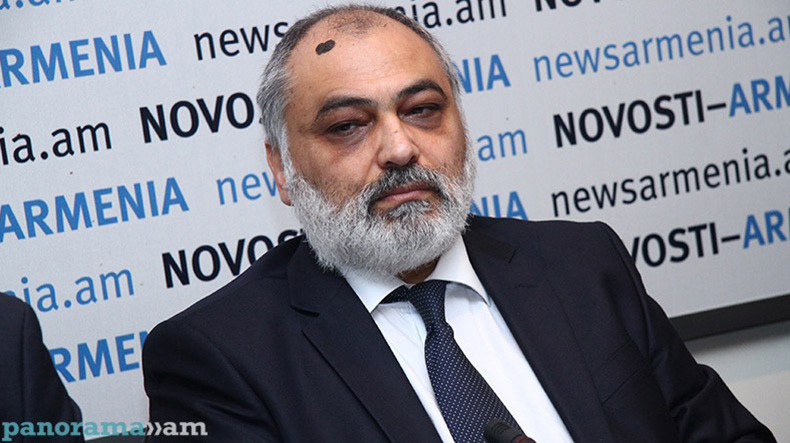
Ruben Safrastyan: The world turned a blind eye on Turkey's aggression in Syria
Turkey's military assault on Syria's Afrin region was a major blow to political process aimed at the conflict settlement, Ruben Safrastyan, Director of Institute of Oriental Studies, told a news conference Monday, commenting on the recent developments in Syria, as the Turkish offensive in Afrin stretches into its second month.
In Safrastyan's words, Turkey's actions are an explicit act of aggression that, regretfully, went unnoticed by the world. "No serious condemnation neither for world powers, nor international community at large followed except from the unanimously approved resolution by the UN Security Council calling for a 30-day ceasefire in Syria," Safrastyan said.
"The resolution appears to have been encouraging and perhaps came after certain arrangements reached by Russian and American sides, since the red lines established in Syria are getting out of control. It seems not all chances are lost to keep Turkey's aggression within certain limits," Safrastyan explained.
Commenting on the Turkish-American relations, Safrastyan pointed that despite the further deterioration of relations the talks underway in different formats could constraint Turkish actions at least until mid-March.
The Turkologist reminded of the Turkish aim to create 30-kilometer-deep safe zones in Syria's Afrin that had been openly announced by the country's leadership. "Turkey seeks to ravage the mentioned territory and if succeeded it would record another act of genocide by that country committed this time in the 21st century," said the expert.
Safrastyan didn't rule out Turkish activation in the South Caucasus under certain scenarios, suggesting as soon as developments allow it would use its current client state Azerbaijan to provoke tensions in the regions in an attempt to divert attention from its actions in Syria.
Newsfeed
Videos






























